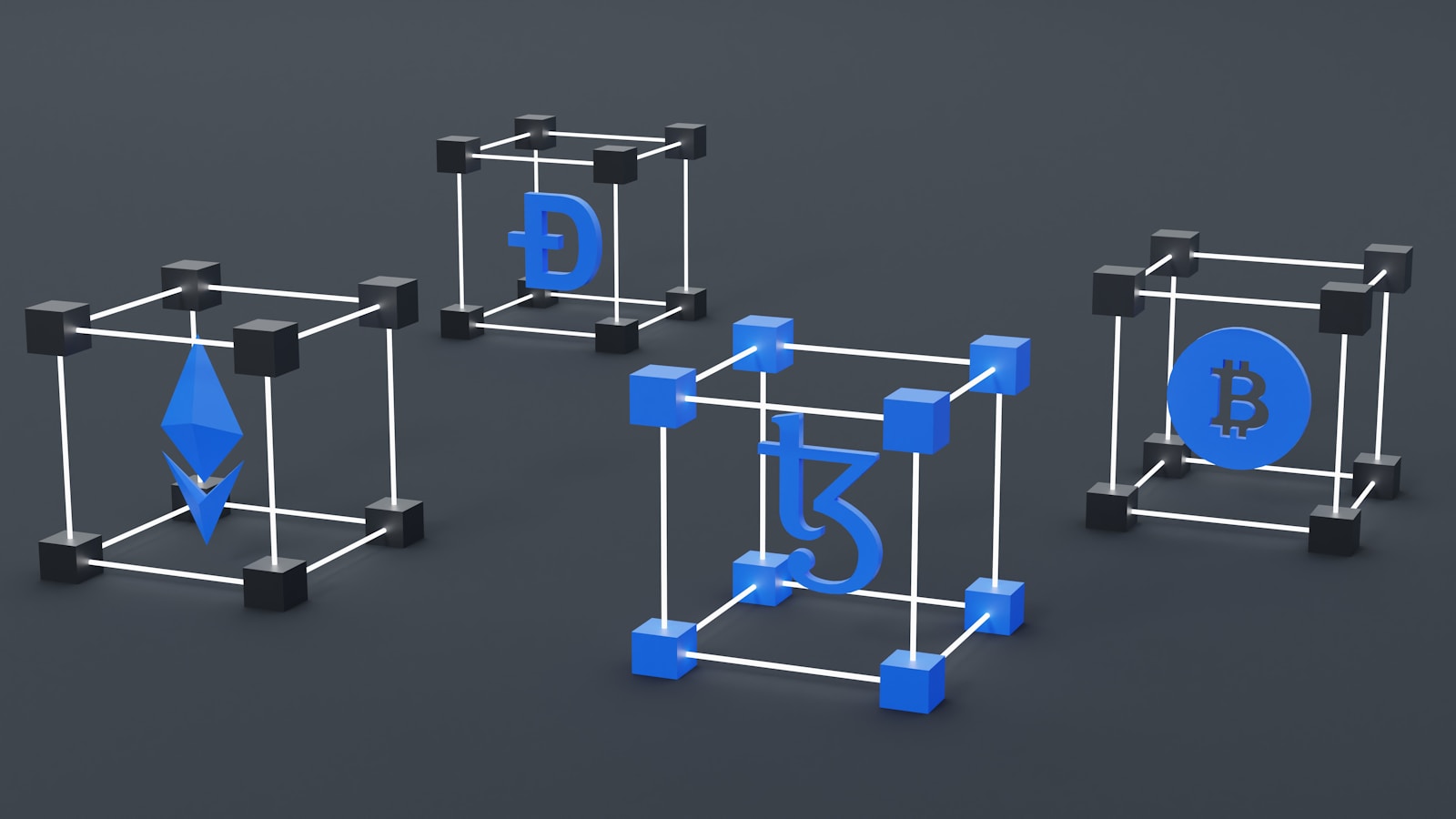Blockchain technology has significantly transformed the realm of supply chain management by offering increased transparency, security, and efficiency in the tracking of products throughout the entire supply chain.
With the utilization of decentralized ledgers, stakeholders can now have real-time access to information regarding the movement of goods, leading to improved trust among parties involved in the process. This enhanced visibility enables swift identification of bottlenecks, reduces the risk of counterfeiting, and ensures compliance with regulations, ultimately streamlining operations and enhancing the overall efficiency of the supply chain.
Furthermore, the integration of smart contracts within blockchain technology has enabled the automation of various processes in supply chain management, such as payment settlements, agreements between parties, and the execution of conditions based on predefined rules. This automation not only eliminates the need for intermediaries but also reduces the potential for errors and disputes, thereby optimizing the workflow and ensuring seamless transactions within the supply chain network. By revolutionizing the way information is shared and transactions are conducted, blockchain is paving the way for a more secure, transparent, and efficient supply chain management system.
Revolutionizing the Healthcare Industry with Blockchain
Blockchain technology is poised to revolutionize the healthcare industry by offering secure and transparent solutions for managing patient data. Through the use of blockchain, healthcare professionals can access a single source of truth, ensuring data integrity and confidentiality. This technology enables seamless sharing of patient records among different healthcare providers, leading to improved care coordination and reduced medical errors.
Furthermore, blockchain enhances the integrity of clinical trials by ensuring the authenticity of data and preventing tampering with results. By incorporating smart contracts on the blockchain, stakeholders can automate processes such as patient consent, data sharing, and monitoring of trial outcomes. This not only streamlines the trial process but also enhances trust and transparency in the research findings, ultimately benefiting both patients and healthcare providers.
Enhancing Data Security in Finance with Decentralized Solutions
Decentralized solutions have emerged as a game-changer in enhancing data security within the finance industry. By leveraging blockchain technology, financial institutions can mitigate the risks associated with centralized data storage and transmission. Through the use of cryptographic techniques and distributed ledger systems, sensitive financial information is encrypted and stored across a network of nodes, making it nearly impossible for malicious actors to tamper with or gain unauthorized access to the data.
Furthermore, the transparency and immutability of blockchain provide an added layer of security, ensuring that all transactions are verifiable and traceable. This not only helps in combating fraud and cyberattacks but also promotes trust among stakeholders in the financial ecosystem. As the finance industry continues to grapple with evolving cybersecurity threats, decentralized solutions offer a robust framework for safeguarding sensitive data and maintaining the integrity of financial operations.
Streamlining the Real Estate Sector through Blockchain Technology
Blockchain technology has made significant strides in streamlining various industries, and the real estate sector is no exception. By integrating blockchain into real estate transactions, the sector has seen increased transparency, efficiency, and security. Smart contracts, facilitated through blockchain, allow for automated and secure transactions, reducing the need for intermediaries and potential errors in documentation.
Additionally, blockchain’s ability to create a tamper-proof record of property ownership has simplified the process of verifying titles and ownership history. This reduces the risk of fraud and ensures that all parties involved have access to accurate and up-to-date information. Overall, the adoption of blockchain technology in the real estate sector has paved the way for faster transactions, lower costs, and a more secure ecosystem for buyers, sellers, and investors alike.
Improving Transparency in the Food and Beverage Industry
The food and beverage industry is undergoing a significant transformation with the adoption of blockchain technology. One of the key benefits of utilizing blockchain in this sector is the enhancement of transparency throughout the supply chain. By leveraging blockchain’s immutable and transparent nature, stakeholders can track and trace products from farm to table, ensuring authenticity and quality at every step of the journey. This increased transparency not only helps in detecting and preventing food fraud but also enables consumers to make more informed decisions about the products they purchase.
Moreover, blockchain technology allows for the secure storage of data related to food safety standards, certifications, and compliance requirements. This digital ledger system ensures that all information regarding the production, distribution, and handling of food and beverages is easily accessible and verifiable. By establishing a decentralized and tamper-proof record of each transaction, blockchain promotes accountability and trust among industry participants, ultimately leading to a safer and more efficient food supply chain.

Transforming the Energy Sector with Decentralized Solutions
Blockchain technology is revolutionizing the energy sector by introducing decentralized solutions that are reshaping the traditional ways of managing energy distribution. Through the use of blockchain, energy transactions can be securely recorded and verified in real-time, enabling greater efficiency and transparency in the energy market. This technology allows for peer-to-peer energy trading, reducing the reliance on centralized energy providers and promoting a more sustainable and cost-effective energy ecosystem.
Moreover, blockchain’s decentralized solutions offer a new level of security and trust in energy transactions by utilizing smart contracts to automate agreements between parties. This eliminates the need for intermediaries, streamlining processes and reducing transaction costs. With blockchain technology, consumers can have greater control over their energy usage, leading to a more resilient and flexible energy infrastructure that can adapt to the evolving needs of society.
Blockchain’s Role in Revolutionizing the Gaming Industry
Blockchain technology is making significant strides in revolutionizing the gaming industry. By utilizing decentralized solutions, blockchain is enhancing the overall gaming experience for players and developers alike. One key area where blockchain is making a substantial impact is in the realm of in-game asset ownership. Through the use of blockchain technology, players can truly own their in-game assets, trade them securely, and even carry them across different gaming platforms seamlessly.
Moreover, blockchain is also addressing issues of transparency and security in gaming transactions. With the implementation of smart contracts, blockchain ensures that transactions are executed automatically and without the need for intermediaries. This not only streamlines the payment process but also reduces the risk of fraud and unauthorized transactions. As blockchain continues to evolve and integrate more deeply into the gaming industry, we can expect to see even more innovative solutions that will shape the future of gaming as we know it.
Decentralized Solutions for Enhanced Voting Systems
Blockchain technology offers a potential solution to enhance voting systems by providing a secure and transparent platform for conducting elections. By utilizing decentralized networks, the integrity and reliability of the voting process can be significantly improved. Through the implementation of blockchain-based voting systems, the risk of fraud and manipulation can be minimized, ensuring greater trust and confidence in the electoral process.
Furthermore, decentralized solutions can also increase accessibility and participation in elections by enabling voters to securely cast their ballots from anywhere in the world. This technology has the potential to streamline the voting process, reduce administrative costs, and enhance the overall efficiency of elections. With blockchain’s ability to provide an immutable record of votes cast, voters can have greater assurance that their voices are being accurately represented in the democratic process.
Utilizing Blockchain for Efficient Identity Management
Blockchain technology has emerged as a game-changer in the realm of identity management, offering secure and efficient solutions for verifying and protecting personal information. By leveraging blockchain’s decentralized and immutable nature, individuals can have greater control over their digital identities, reducing the risks associated with identity theft and fraud. Through the use of cryptographic keys and smart contracts, users can securely manage and share their identity credentials with full transparency and privacy.
The adoption of blockchain for identity management also holds the potential to streamline processes across various industries, such as healthcare, finance, and government services. With the elimination of centralized databases and the implementation of self-sovereign identity models, individuals can interact with different service providers seamlessly while maintaining ownership of their identity data. This shift towards decentralized identity solutions not only enhances security and privacy but also paves the way for more efficient and user-centric digital experiences in the modern era.
The Future of Legal Contracts with Blockchain Technology
Legal contracts are the backbone of business transactions, ensuring that agreements between parties are binding and enforceable. With the advent of blockchain technology, the future of legal contracts is set to undergo a transformative shift towards increased efficiency and security. By utilizing blockchain for contract management, parties can benefit from tamper-proof records, streamlined processes, and automated execution of contractual terms.
One of the key advantages of integrating blockchain into legal contracts is the enhanced transparency it offers. Through the use of distributed ledger technology, all parties involved in a contract can have real-time access to the same set of records, reducing disputes and promoting trust. Additionally, smart contracts built on blockchain can automate various aspects of contract fulfillment, such as triggering payments or enforcing conditions, leading to greater efficiency and reduced administrative burden.
